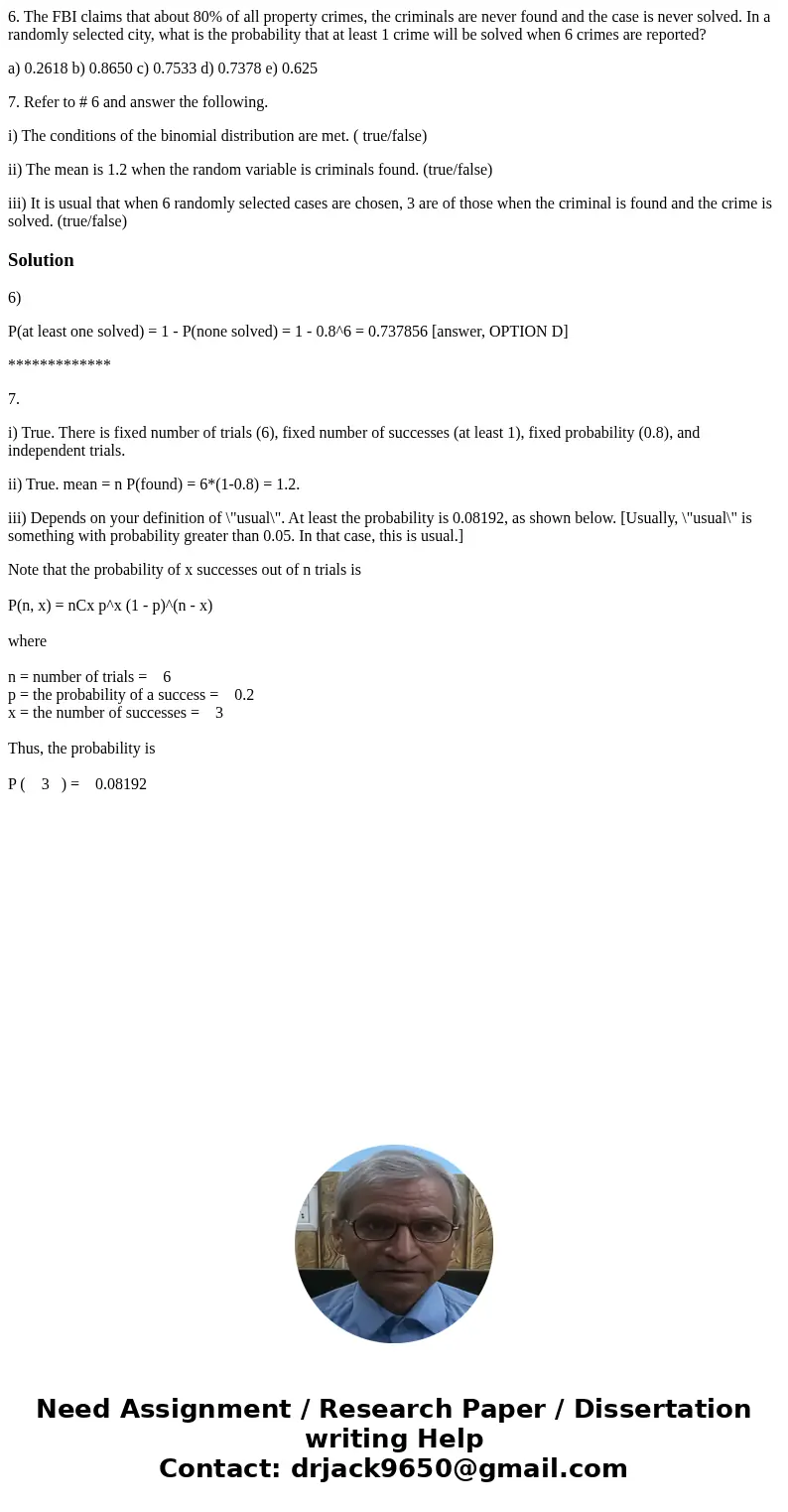6 The FBI claims that about 80 of all property crimes the cr
6. The FBI claims that about 80% of all property crimes, the criminals are never found and the case is never solved. In a randomly selected city, what is the probability that at least 1 crime will be solved when 6 crimes are reported?
a) 0.2618 b) 0.8650 c) 0.7533 d) 0.7378 e) 0.625
7. Refer to # 6 and answer the following.
i) The conditions of the binomial distribution are met. ( true/false)
ii) The mean is 1.2 when the random variable is criminals found. (true/false)
iii) It is usual that when 6 randomly selected cases are chosen, 3 are of those when the criminal is found and the crime is solved. (true/false)
Solution
6)
P(at least one solved) = 1 - P(none solved) = 1 - 0.8^6 = 0.737856 [answer, OPTION D]
*************
7.
i) True. There is fixed number of trials (6), fixed number of successes (at least 1), fixed probability (0.8), and independent trials.
ii) True. mean = n P(found) = 6*(1-0.8) = 1.2.
iii) Depends on your definition of \"usual\". At least the probability is 0.08192, as shown below. [Usually, \"usual\" is something with probability greater than 0.05. In that case, this is usual.]
Note that the probability of x successes out of n trials is
P(n, x) = nCx p^x (1 - p)^(n - x)
where
n = number of trials = 6
p = the probability of a success = 0.2
x = the number of successes = 3
Thus, the probability is
P ( 3 ) = 0.08192

 Homework Sourse
Homework Sourse